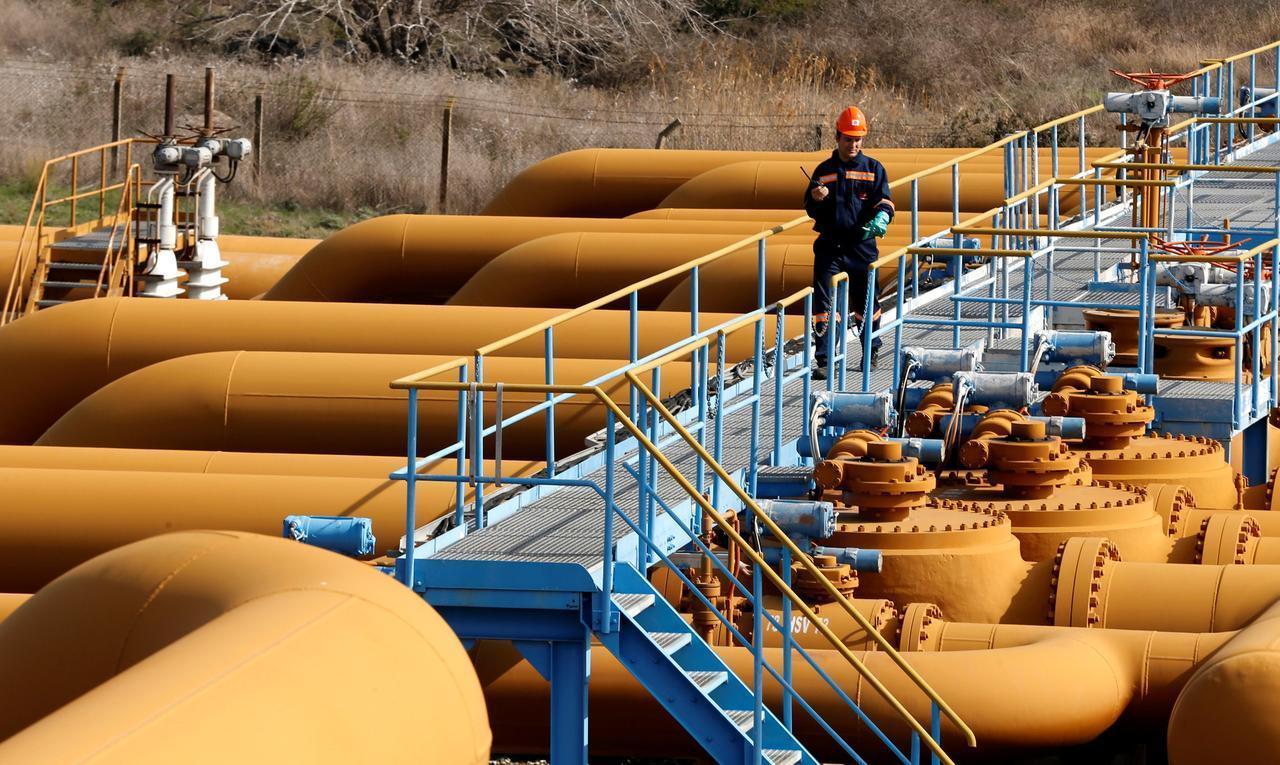
A worker performs checks at Turkey's Mediterranean port of Ceyhan, which is run by state-owned Petroleum Pipeline Corporation (BOTAŞ), some 70 km (43.5 miles) from Adana, Turkey, February 19, 2014. (Reuters/File Photo)
Turkey wants to cut industrial sector power bills by launching a project to produce energy savings and by using more efficient motors, the Turkish Industry and Technology Minister announced on Jan. 14
"The energy demands of the Turkish industry have more than doubled over the past 17 years, and this rapid rise will continue in the future," Mustafa Varank told during the energy summit in capital Ankara.
Varank said it is important to make improvements in industrial branches with heavy power demands.
Underlining that 2 million people are employed in some 315 organized industrial zones of Turkey, the minister said that the growth of the industry is directly proportionate to the demand for energy.
Savings target
"We want to raise awareness of the efficiency of electric motors in the industry with a pilot project," he said. He added if the project proceeds as planned, companies will boost their competitive edge.
Varank also said that an analysis had found that replacing inefficient engines in the Turkish industry would cost some 27 billion Turkish liras ($4.6 billion), but this could produce annual energy savings of 24 billion Turkish liras ($4 billion).
He said 90 percent of the electric motors used in industry is inefficient.
"These inefficient engines need to be replaced with new, higher-tech, and more efficient engines," he added.
Varank also conveyed that the Turkish government is planning to give some incentives to industrialists for this.
"Let's say the cost of the engines to be used for this conversion is 100 Turkish Liras, 60 of which will be given to industrialists as a grant. We hope to start doing this next week," he said.
He also announced that a study of more stringent control of the efficiency of imported engines has been launched in collaboration with the Trade Ministry.
Risk premium improving
The minister also stated that Turkey's risk premium is improving, fueled by a revival in leading growth indicators such as rising manufacturing orders, capacity utilization rate, and economic confidence index, while interest rates are falling and inflation is below the target.
Turkey’s calendar-adjusted industrial production soared 5.1p percent in November 2019 compared to the same month of the previous year, according to official data released on Jan. 14.
"The positive trend in industrial production, which started last September, is continuing with added strength," Varank said.
He added this year Turkey will have achieved much stronger growth, with investments lying at the heart of this.
"We will enter 2023 as a country that has a say in industry and technology by spreading revitalized growth to the medium and long term," he said.
Separately, Treasury and Finance Minister Berat Albayrak said on Twitter that Turkey is progressing step by step to the desired acceleration in industrial production.
"Our priority will be value-added production based on employment and exports. In 2020, we will carry these figures even farther," he wrote.